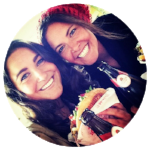Teaching English in Germany: Top 12 Festivals and Cultural Highlights
Teaching English in Germany? Deepen your understanding of German culture and create lasting memories by participating in these key events and traditions that set European country apart.
Written By: Matt Birgy | Updated: October 29, 2025
Written By: Matt Birgy
Updated: October 29, 2025

There are a multitude of reasons to live and teach English in Germany. From the outstanding landscapes of Bavaria and the beer halls of Munich to the historic monuments of Berlin and the charm of Heidelberg, Germany is rich in culture, history, and stunning natural beauty. If you're looking for medieval castles, grand palaces, exquisite gardens, and picturesque villages, you will find it all in this vast country.
Located in the heart of Europe, Germany is surrounded by nine countries, which also makes it a great base for travel throughout the continent. As the largest and most prosperous economy in the European Union, Germany is also a major center of trade, industry, and finance. This has created large demand for English language instruction and trained English teachers. Living and teaching English in Germany provides a perfect opportunity to experience the nation's rich cultural heritage, including music, architecture, history, and food. Here are some top festivals and other cultural highlights that you will surely want to experience while teaching English in Germany...
1. German Beer Culture
Germany is widely recognized as one of the world's great beer brewing and drinking centers. The nation is home to more than 1,200 breweries, which produce a dazzling variety of beer worldwide. Since the 16th century, the German beer industry has been regulated by the “German Beer Purity Law.” Known as the Reinheitsgebot, the standards have traditionally limited ingredients in German beer to barley, water, and hops (though some regional beers do include wheat). Even with this historic law in place, you can find many different kinds of beers to try depending on where you are, from Hefeweizen to Kölsch. According to the World Health Organization, Germany, a country of 83.8 million people, is one of the leading countries in beer consumption. Downing 110 liters per capita each year, Germans rank 3rd in the world in beer consumption behind only the Czech Republic and Ireland.

2. Beethoven in Bonn
Germany is also home to some of classical music's greatest composers, including Bach, Beethoven, Handel, Mendelssohn, Wagner, and Strauss to name a few. Throughout the year great music can be heard in historic music halls, festivals, and even street corners across the country. A certain highlight for classical music lovers is the annual “Beethoven Festival” held in September in the great composer's hometown of Bonn, which also served as the capital of the old West Germany during the Cold War.
3. Culture & History in Berlin
Berlin is a place of great history, but as the capital of a united Germany, it is also a city of constant reinvention and innovation in fields like fashion, music, art, and design. Beer lovers will certainly look to attend the “Berlin International Beer Festival” in early August while history aficionados can explore key landmarks in German and European history like Checkpoint Charlie, the Berlin Wall, the Holocaust Memorial, Bundestag, and the Brandenburg Gate. For a breather, take a peaceful stroll through the Tiergarten Zoo, then enjoy some of the hundreds of art galleries and museums, before relaxing with a cup of coffee and a pastry. In evening enjoy some of Europe's most exciting nightlife in the city's innumerable nightclubs, bars, and restaurants!
4. Munich & Oktoberfest
Known for its grand cathedral, charming shops and the prowess of it legendary soccer team, FC Bayern Munich, Munich is a city of sophistication, culture, art, and of course, beer. Each year from mid-September to early October, thousands from around the globe flock to the city for the world's most famous beer festival, Oktoberfest, which first started as a celebration of the future Bavarian King's marriage in 1810. The now internationally famous festival includes fantastic music, food, massive tents, and many variations of the special lager "Märzen" which is only brewed by Münchner breweries for this time of year. Prost!

5. Frankfurt & the Museum Riverbank Festival
A city of contrasts, Frankfurt is the fast-paced business and financial center of Germany, and home to the highest concentration of skyscrapers in Europe in addition to the country's busiest airport. It also boasts centuries of tradition and history, including a rich heritage of well-maintained historic buildings concentrated in areas like Romer Square! In August, the city hosts the Museum Riverbank Festival, one of the biggest cultural festivals in Germany attracting more than 3 million visitors every year.
6. Hannover & the Fireworks Festival
If you want to add sparkles to your fairy travel tale, head to Hannover, a charming historical city known for its grand city hall, historic opera house and vast gardens that is also a major center of universities and scientific research and development. Annual highlights include the Fireworks Festival with dates from May to September, which is actually a competition featuring elaborate fireworks displays in addition to music, food and other entertainment!
7. Hamburg's Port Festival
The second largest city in Germany, Hamburg is one of the busiest ports in the world and it boasts a distinct maritime history and charm is celebrated annually in May during the “Hamburg Port Anniversary: The World's Biggest Port Festival.” Festivities include a grand flotilla of historic ships sailing down the Elbe, historical exhibits, food, music, boat races and more!
8. Castles of Bavaria
Germany, and the region of Bavaria in particular, is littered with charming historic castles, but none is as famous as the Schloss Neuschwanstein Castle located in Hohenschwangau Village at the foot of the Bavarian Alps. Built in its current form in the 19th century (the original structure dated to the 12th century), the castle was the "fairytale" dream home of King Ludwig II of Bavaria and is considered one of the most beautiful and recognizable castles in Germany, if not the world. It is also widely believed that the castle served as a primary inspiration for Disney's Magic Kingdom as well as the setting for many Disney fairytales.

9. Nightlife in Dusseldorf
Dusseldorf is one of the wealthiest cities in Germany. Located on the Rhine, it enjoys a reputation for offering some of the best nightlife in Germany. The action is concentrated in the Alstadt district, which is known as the "longest bar in the world" for the 300+ bars and taverns that line the streets of the Old Town! Here you can enjoy a traditional Altbier ("old beer"), which is brewed from a traditional local recipe, as well as other local and regional food and drinks. In the autumn, hit the New Fall Festival featuring an array of experimental art and music.
10. Medieval Festivals in Rothenberg
Immerse yourself in the Middle Ages and discover why Rothenburg enjoys a reputation as the best preserved medieval old town in Germany while attending the Der Meistertrunk festival. Held in May on Pentecost (the seventh Sunday after Easter) this lively four-day festival celebrates the town's salvation from a 17th-century siege with all sorts of medieval flair and pageantry. This unique festival includes a medieval parade along the city's famous cobblestone streets and many citizens and visitors dress in medieval costumes to attend parties and performances in the Biergartens. The focal point is a reenactment of the legend of Mayor Nusch who in 1631 during the Thirty Years War saved the town by drinking three liters of wine in a single gulp (and probably took a nap after).
11. Carnival in Cologne
There's a very special reason why Carnival in Cologne takes spot number 11 on this list. One of the most famous festivals in all Germany, this kick-off to the Carnival Season opens each year at 11 minutes past 11 o'clock of the 11th day of the 11 month of every year. The serious Carnival celebrations don't really kick in in earnest until after the Christmas season in January, when bars, restaurants and private citizens hold a myriad of events and parties that culminate with the Rose Parade held on the Monday before Ash Wednesday. During the week leading up to Fat Tuesday and the beginning of Lent, Cologne, one of the most beautiful and charming towns in Germany, hosts street festivals that rival festivities anywhere else, including New Orleans and Rio de Janeiro.
12. Christmas Markets
There is always a reason to hold a festival and celebrate in Germany, but Christmas is the biggest festivity of the year, without a doubt. While Americans often spend much of their holiday season shopping and eating in modern malls and shopping centers, German Christmas festivities focus largely around the traditional Christmas markets that can be found famously in Dresden, Nuremberg, Rothenburg, and also around the country. Festooned with colorful lights, decorated trees, and life-size nativity scenes, German Christmas markets are the perfect way to get in the mood for the holiday season. Known as Christkindelmarkt, these markets typically incorporate dozens, if not hundreds of stalls selling traditional handicrafts and Christmas treats like freshly roasted chestnuts, gingerbread, hot pretzels, sausages, and hot wine.Want to learn more about living and teaching in Germany? Check out this video with ITA Alum Brandon exploring Berlin! You can watch even more videos on Germany in our video library.
Go Further:
Matt Birgy
Matt Birgy is a member of the ITA Advising team, Matt has taught abroad in South Korea, studied in Germany, worked with adult ESL students in Chicago and visited over 20 countries worldwide. Between his teaching days in Korea and working as a senior advisor at ITA, Matt has more than 10 years of professional work experience in the field of TEFL and Teaching English Abroad.
Want to Learn More About Teaching English Abroad & Online?
Request a free brochure or call 773-634-9900 to speak with an expert advisor about all aspects of TEFL certification and teaching English abroad or online, including the hiring process, salaries, visas, TEFL class options, job placement assistance and more.








